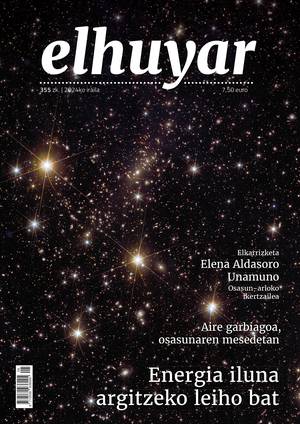People and ecosystem
Conservation of the river ecosystem and effective measures to reduce the risk of local flooding are not antagonistic concepts. They are compatible. And not only that, they often come hand in hand. What's more, the classic river management strategy -- riverbed channeling, river channeling and dredging -- is not only destructive to the river ecosystem, but can also be harmful as an anti-flood strategy. This has been expressed by those who know much more about the risk of flooding of rivers than we in the report dedicated to this issue in this issue, and it is also a clear harmony between ecologists and managers.
The change of focus is evident. What a few years ago were standard measures against floods, such as channeling and dredging of rivers, which today are rejected by the managers of the Basque Water Agency, precisely because they are not particularly beneficial and persistent, despite the widespread social perception that they are effective interventions against floods. Ecologists and managers represent them on each side of the rope, but it seems that as scientific and technical knowledge accumulates, concern for the environment in society is spreading and as new regulations come into force, a comprehensive vision is being imposed, at least in this area. It is a pleasure.
But they are not the only ones that ecologists and managers have been on either side of the rope. This is the case of floods. Or in the game of skills, those who want to devote themselves to building land that should not be used for construction from the point of view of flood risk. Therefore, together with the right solutions for people and the ecosystem, it will be essential to break myths and make pedagogy and establish measures to ensure compliance with regulations so that no one can create new risk centers at the expense of everyone.






